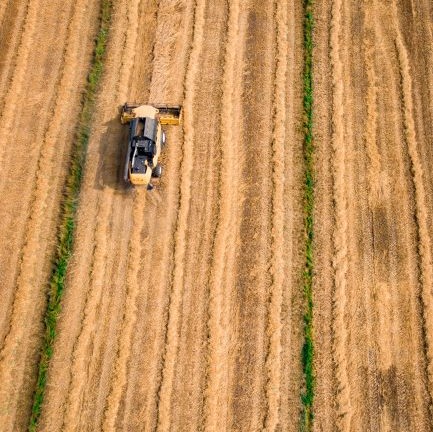By Prof Steven Banwart, Director of Global Food & Environment Institute and Leadership Chair in Soil, Agriculture, Water Research at the University of Leeds

The Global Food and Environment Institute (GFEI) was started in 2017 with the aim to contribute solutions to the big global challenges of food security, environmental sustainability, and improved dietary health. We frame the work of the GFEI within the context of regional and global economies.
On one hand, we consider the supply side and the constraints of the environment on providing sufficient productive agricultural land and water supply, as well as the pressures of land degradation on soil fertility as elements that need to be managed in order to supply enough food.
On the other hand, there is the demand side, with a rapidly growing and urbanising global population, which is creating demand pressures on the supply chains that link up the system. The GFEI is looking for ways to improve the functioning of this supply system both locally and globally.
The Institute is organised around four research themes: Agriculture and Environment, Urban Food Consumption, Food in the Global South, and International Food Supply Chains. Our principal physical asset is the University of Leeds (UoL) Research Farm which is an environmental observatory embedded within a 350-hectare commercial farming operation. The farm operations and the environmental observing systems are linked to create a digitally connected smart farm which partners with other sites and research facilities around the world.
As we approach World Food Day on 16 October it is an important time to reflect on African and global food systems, as well as the research partnerships we need to collectively tackle these grand challenges. I discuss some of GFEI’s exciting work in Africa, but also across our global partners in Asia and North America in the following video:
One major activity associated with the GFEI is the GCRF-AFRICAP project, which works with a number of regional partners in Southern Africa. Our main partner leading that work is the Food, Agriculture, and Natural Resources Policy Analysis Network (FANRPAN). These African partnerships are focused on developing policy innovations using science evidence to help inform development pathways that will help future-proof African agriculture production and food supply against the pressures of climate change.
The GFEI also works extensively in East Asia. One of the focus areas of these partnerships is to find ways to reduce the dependence of Chinese agriculture on mineral nitrogen fertilizer to reduce the carbon footprint of agriculture and simultaneously improve the capability of Chinese agricultural production. We also work with several partners in North America to study agriculture production and land use to determine how to manage natural resources sustainably while maintaining high-intensity agriculture.
Whether in Africa, Asia or the America, through our global partnerships, the GFEI seeks to address food systems challenges by promoting the production of food in ways that protect the environment, reverse some of the historical declines in soil organic matter, and diminish the pressures that have been created on water resources and by the demand for agricultural land.
The GFEI is incredibly excited to be collaborating with the ARUA–UKRI GCRF FSNet-Africa partners. We look forward to growing these relationships over the coming years and doing great things together.
This blog and associated vlog is part of a joint campaign for World Food Day led by the ARUA-UKRI GCRF Food Systems Research Network for Africa (FSNet-Africa) in partnership with the Food, Agriculture, and Natural Resources Policy Analysis Network (FANRPAN), the University of Leeds’ Global Food and Environment Institute (GFEI), and the GCRF AFRICAP programme. Follow the campaign on Twitter @gcrfafricap, or visit our partners’ websites over the next two weeks – University of Pretoria, FANRPAN, and GFEI.
